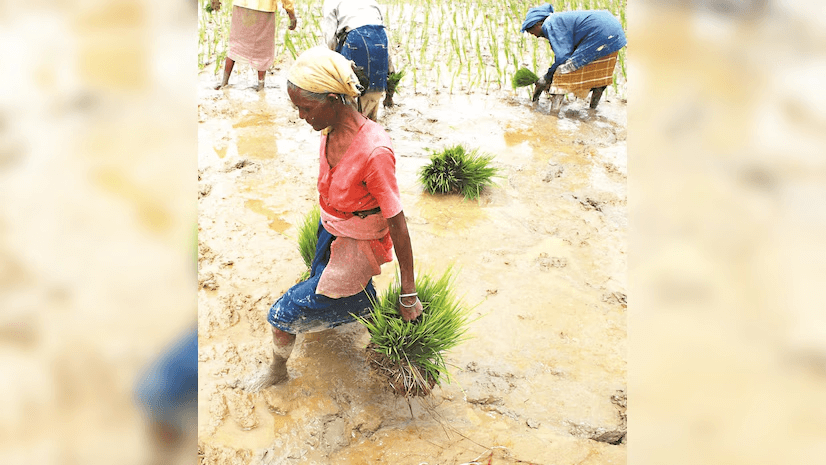Tags
Climate-resistant seeds likely to cover 25% kharif paddy area in 2024
ICAR working on releasing 100 seed varieties and 100 technologies in 100 days

The government is targeting to cover almost 25 per cent of this year’s kharif paddy area with climate-resistant seeds. This comes as it looks to build on the success of such seeds in the bumper wheat harvest this year, a senior government official said.
In the just-concluded rabi season, almost 75 per cent of the total area under wheat was under climate-resistant varieties, director general of the Indian Council of Agriculture Research (ICAR) Himanshu Pathak said on Monday.
As a result, total wheat production in the 2024-25 marketing season is estimated to be a record around 113 million tonnes.
Pathak was addressing reporters on the sidelines of a press conference to celebrate the 96th Foundation Day of the country’s premier agriculture research body.
Climate-resistant paddy seed varieties can withstand drought, prolonged lodging, and submersion, Pathak said.
Last year, around 16 per cent of the total kharif paddy area was under climate-resistant varieties.
India, the world’s second-largest rice producer after China, cultivates paddy in over 41 million hectares during the kharif season.
Research studies indicate that climate change could reduce rice yields in India by 3-5 per cent under a medium-emission scenario, and up to 31.3 per cent by 2030 under high emission.
India’s estimated rice production for the 2023-24 crop year (July-June) was at 136.7 million tonnes. Top rice-producing states include West Bengal, Uttar Pradesh, Punjab, Tamil Nadu, and Andhra Pradesh.
The ICAR is also working on a plan to develop 100 new seed varieties and an equal number of farm technologies within a 100-day timeframe. This is to bolster India’s agricultural sector.
The initiative, part of the government’s 100-day action plan, focuses on climate-resilient and bio-fortified seed varieties. They also include farm technologies.
“We’re actively working on two key action plans — 100 new seed varieties in 100 days and 100 technologies in 100 days,” Pathak added.
He indicated that ICAR is seeking Prime Minister Narendra Modi’s time to unveil these innovations, likely in mid-September, when the 100-day period concludes.
With its workforce of 5,521 scientists nationwide, ICAR is developing new seed varieties across various crops, including rice, wheat, and horticulture.
The technologies under development span water management, mechanisation, and plant protection.
ICAR also plans to expand its oilseeds hub programme to 174 districts this year and create model village hubs for pulse seeds in 130 districts.
Strong monsoon boosts kharif sowing
Sowing of kharif crops continued to remain strong during the week ended July 12 due to good monsoon so far in July after a drop in June rains. Data showed that the acreage of all kharif crops was almost 10.34 per cent more than the same period last year. Among kharif crops, acreage of arhar and soybeans showed maximum rise during the week ended July 12. This should augur well for the overall pulse and oilseeds production. The cumulative monsoon till July 15, 2024, was deficit by 2 per cent due to a slight weakening of rains over North-west India since the last week or so.

Published Date: July 17, 2024






